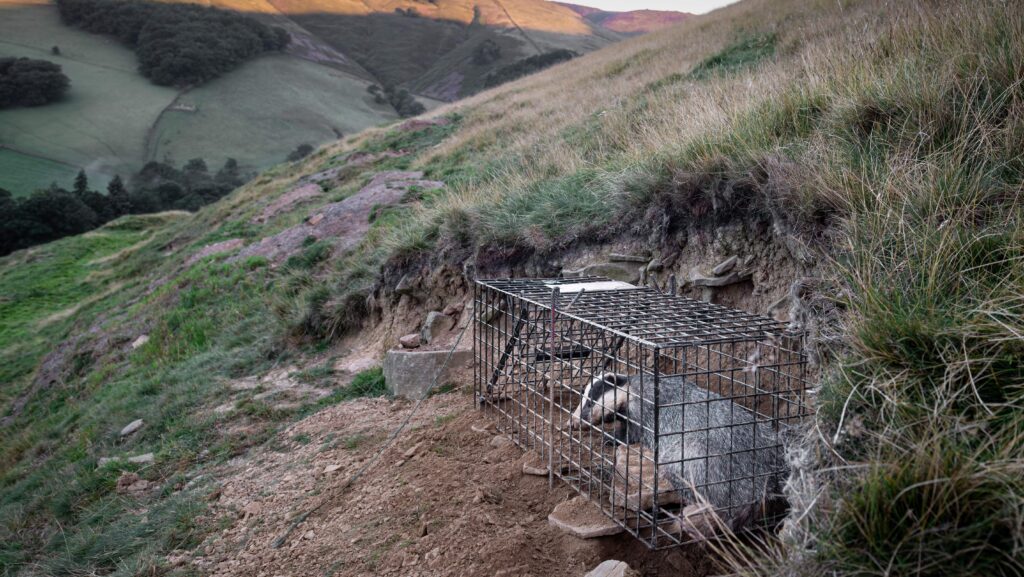Farmers question findings of Cornish badger vaccination study
 A badger captured in a cage during a vaccination project © Adobe Stock
A badger captured in a cage during a vaccination project © Adobe Stock Farmers have questioned the results of a study in Cornwall which shows that vaccinating badgers had reduced the number testing positive for bovine TB (bTB) from 16% to zero.
Cornwall is among several cull areas but in a study carried out over a period of four years, badgers on 12 farms in the county were vaccinated.
A report (PDF) by the Zoological Society of London (ZSL), Cornwall Wildlife Trust, and Imperial College London said 265 badgers were vaccinated, which it suggests is more per square-kilometre than were caught by nearby culls.
See also: NFU president warns Labour not to end badger cull early
According to counts from camera traps 74% of local badgers received the vaccine.
Blood sampling showed that the proportion of badgers infected with bTB fell from 16% to zero, even though overall badger numbers remained high.
There is, however, no evidence to confirm this translated to a reduction in the herd incidence in cattle herds.
Farmer scepticism
Although the farmers in the study welcomed the findings, others are more sceptical.
Cheshire-based dairy farmer Phil Latham, who previously sat on the Bovine TB Partnership in England, questioned how the impact of badger culling could be “disentangled” from badger vaccination to draw any firm conclusions.
He insisted that there was no evidence that badger vaccination was effective or could be scaled up.
“Without a deployable cattle vaccine, the only game in town is [badger] culling,” he said.
Others have questioned the scale of the study, which took place over 11sq km.
David Barton, NFU Livestock Board Chairman, said that scale needed to be taken into account.
“I am interested in any tool that could help reduce TB in cattle but this study needs to be done on a bigger scale if we are to truly understand what would happen if vaccination was rolled out more widely – and the cost of that and whether it is deliverable, as vaccination is time-consuming.”
Wildlife groups have attempted to vaccinate badgers at scale, but through lack of resources have failed to deliver effective coverage over a sustained period.
Mr Barton said vaccination could be a useful tool in conjunction with culling.
“I don’t see this as a replacement for culling, it could never achieve the reductions in bovine TB that we have seen in four years of culling,” he added.
The team behind the recent study in Cornwall wants the UK government to support further evaluations of community-led badger vaccination.
This study was initiated and part-funded by the 12 farmers in the vaccination area.
Project lead Professor Rosie Woodroffe, of ZSL, has said that the hope was to help move bTB control to “a place where farmers and wildlife groups can work together towards this shared goal”.
Defra reaction
In a statement, Defra said the government would roll out a TB eradication package, including vaccination, herd management and biosecurity measures, to “protect farmers’ livelihoods and end the badger cull”.
“We recognise the devastating impact bovine TB has on the farming community, which is why we are committed to working with farmers and scientists on measures to eradicate this disease,” a Defra spokesperson said.
